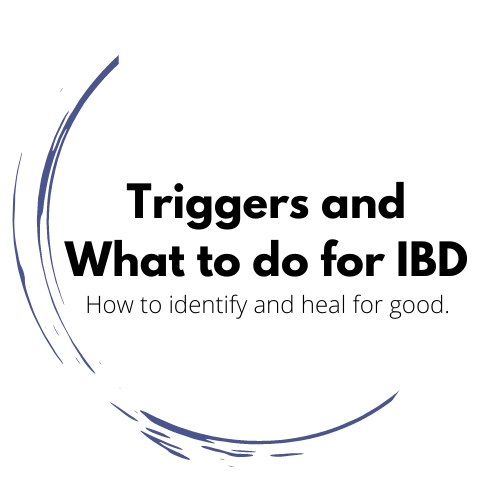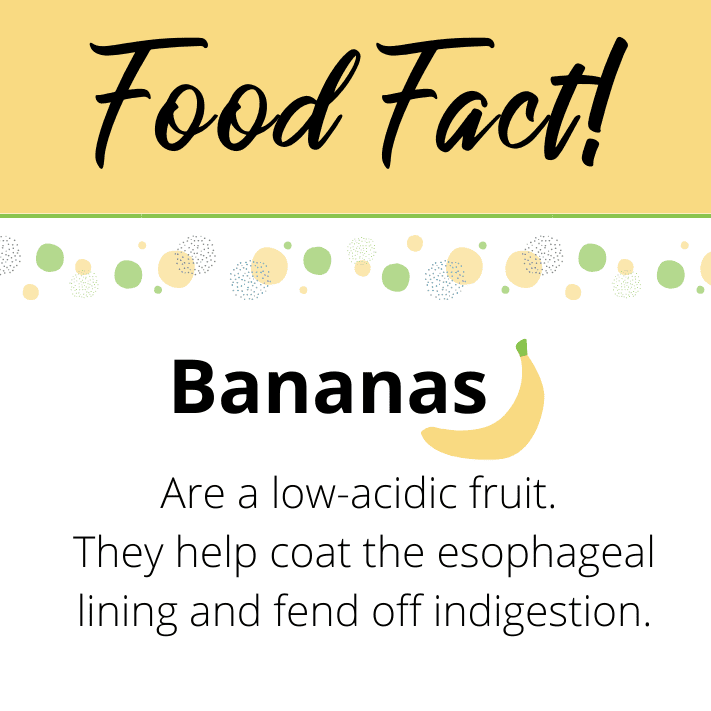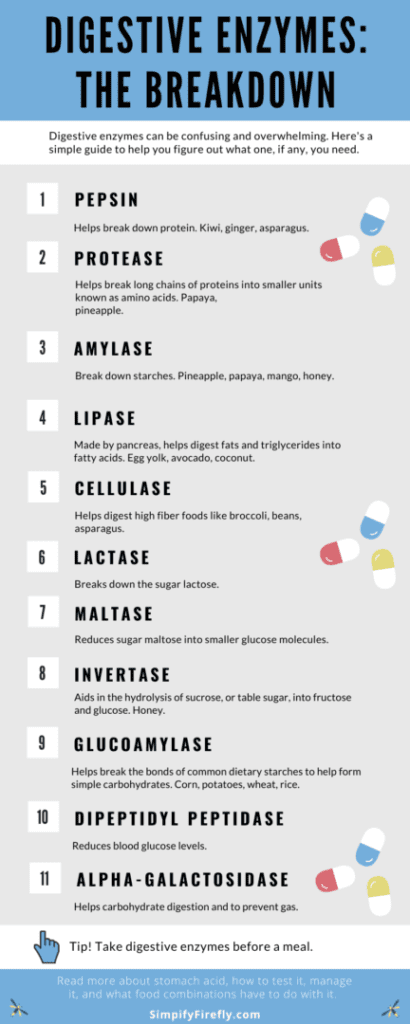Tired, bloated, indigestion after you eat? Let me fill you in on a little secret, it probably has something to do with food combining. Our stomach is known for acid. Stomach acid, along with the help of enzymes, helps break down food. Not only that but it helps support the body in absorbing protein and vitamin B-12, which we only get from protein (meat). In this post, you’ll find tips on how to feel better and get more bang for your nutrition buck! How to reduce stomach acid, how to increase stomach acid, how to test which one you have, and why food combining has a lot to do with stomach acid is in this post. Plus! You can download my free easy to easy-to-understand food combining chart!

Let’s jump into the stomach.
If you have high levels of stomach acid you’re probably experiencing one of these symptoms: acid reflux, burping, or you may even feel nauseated. If you have too little stomach acid you may feel bloated, experience diarrhea or constipation, have food intolerances, osteoporosis, leaky gut, malnutrition, and heartburn. It’s kind of confusing, eh?
If you have either too high or too low stomach acid it puts stress on the digestive system which can lead to further problems down the road, for instance, if you have heartburn (GERDS) and don’t pay attention to it, it can cause permanent damage to the esophagus and upping your chances of precancerous cells. If the stomach acid is too low and left untreated it can lead to hair loss, GI infections, anemia, lupus, allergies, chronic autoimmune disorders, and thyroid issues to name a few. Yikes!
How do you know if you have high or low stomach acid?
First off, I’m not a doctor, nor am I trying to be. I share the information I have either experienced myself or am extremely interested in. I keep things simple and give you a nutshell version of what I’ve learned. *Consult your physician before jumping into new things.*
There are several things you can do to figure this out:
1) You could visit your doctor and have them order a test. Most likely it will be a CBC (complete blood count) and CMP (comprehensive metabolic panel). From the test they’ll look at a variety of factors, including iron and phosphorous levels.
2) The other test is the Heidelberg Stomach Acid Test, this test requires fasting for 12 hours and swallowing a tiny electronic capsule. You will need to drink a baking soda solution and then the capsule will record how long it takes your stomach to restore normal acidity levels. Cool!
3) If you don’t like doctors or want to spend the extra cash, there is a simple at-home test is called the Baking Soda Acid Test. The accuracy of this test is not 100%, so it’s best to do this test regularly to get a better idea of where you are on stomach acid.
Here’s how to do it: Mix ¼ tsp of baking soda in four ounces of water. In the morning before you eat or drink anything else, drink the concoction. Next, start your timer on your phone and time how long it takes to burp. If it takes more than five minutes or you experience no burp at all, it’s a sign of low stomach acid.

Tips on how to reduce gastric juice:
1) Understand what food combinations cause high acidity. See my chart on freebies.
2) Eat smaller meals. Overeating can put pressure on the esophageal sphincter, which causes it to open and leak acid into your esophagus.
3) Try a low-carb diet. When our system can’t digest carbs well, we get gassy and bloated, which then leads to GERD. Numerous studies support this idea. Looking into amylase, a digestive enzyme that helps break down carbs may significantly help you when you can’t say no.
4) Limit the guilty pleasures of caffeine and alcohol. The alcohol relaxes the esophageal sphincter and the caffeine weakens the sphincter. They basically have the same effects on the sphincter. Try decaf coffee instead, that’s what I do and my body has adjusted well after the caffeine withdrawal ended.
5) Chew gum. This helps increase saliva production and helps clear the esophagus of stomach acid. It helps with symptoms but doesn’t solve the root cause. No wonder my son loves gum!
6) Cut back on carbonated drinks and citrus juice. Again both of these kinds of beverages weaken the esophageal sphincter.
7) Mint is a no-go. Mint chocolate chip ice cream should take a backseat if you experience symptoms. This refreshing herb is so relaxing that it also relaxes the sphincter. Peppermint tea, peppermint chocolate or candies, and peppermint-flavored gum have the potential to fire back, literally up your esophagus.
Some other tips to help alleviate symptoms are not eating too close to bedtime, elevating your head while sleeping, and avoiding laying on your RIGHT side. These tactics help calm the acid and keep that pesky sphincter closed!

4 little ways to increase low stomach acid at home
1) I wouldn’t hit the meat & potatoes to fix your low stomach acid, instead, take a shot of Apple Cider Vinegar that includes the Mother. This is an easy way to help your stomach acid get ready to work before a meal. Mix one tablespoon of the vinegar in water and drink before a meal. Make sure you get the right one. You can see it here.
2) Like honey? Try Manuka Honey. This honey comes from New Zealand and has amazing antimicrobial properties. It helps with IBS, indigestion, stomach ulcer prevention, and oral health, and like most honey, helps with wound healing and sore throats. Get more details on Manuka Honey here.
3) Chew. “Chew, chew, chew.” When we’re hungry, we tend to eat fast and take big bites! It’s like a welcome mat for a stuck burp. Chew every bite so it turns into mush. There is no need to eat your food fast. Simply use a smaller fork to help with bite-size.
4) Digestive enzymes also do the trick. Unfortunately, the first time I tried these they gave me diarrhea. They can cause constipation in some people too. But don’t let this discourage you. Digestive enzymes play an important role in vitamin and nutrient absorption. As you age or if you have a digestive disorder, or have pancreas issues, your enzymes deplete and lead to uncomfortable symptoms. For instance, one sign is a change in bowels and/or seeing undigested food in your stool. Yes, you should look at your poop! So before I completely gave up on digestive enzymes, I gave them another try. This time I played with the dose. Instead of a whole pill before a meal, I only took a pinch and it worked a lot better. After your body gets used to them you can move forward from there.

What are digestive enzymes?
In a nutshell, there are three main types of digestive enzymes: proteases, lipases, and amylases. Here is a list of the enzymes and what they do. Helpful Hint: Pancreatic enzyme names usually end in “-in” (like trypsin or pepsin), while other digestive enzymes usually end in “-ase” or “-ose” (like lactose, sucrose, fructose).
The trick for making digestive enzymes work for you is to first determine if you are a candidate for supplementation. Know your body, and pay attention to how it reacts after you eat. Are you burping, bloated, having to run to the bathroom, heartburn, stinky gas and a lot of it, or cramping?
The next step is to determine what kind of enzyme you need. Asking your doctor, a nutritionist, or a functional medicine doc for their recommendations is the way to go. Just note the FDA does not regulate digestive enzymes, so everyone will have their own opinion, but you know your body best. You want clear ingredients from a reputable manufacturer.
Third, you’ll have to experiment to find the right dose. Remember this post is not intended to be a substitute for professional medical advice. I’m not a doctor. Seek advice from a qualified health provider before trying something new. This post is to help you investigate how to help heal your body and ask the right questions to your healthcare provider.

Stress can increase stomach acid?
Does stress increase stomach acid? That’s a great question. The answer is debatable but most likely. Stress affects our muscles, our immune systems, and our minds. All of those things work together to keep our bodies functioning. When one is off, it affects the other. If your muscles are tight around the stomach, it might push your stomach contents around and increase pressure. It doesn’t hurt to manage stress. For managing stress you’ll want to check out this post: How to Reduce Stress in your Life: 10 Breakthrough Tips.
Food Combining 101
Back to Food Combining. Yes, combining food makes a difference with stomach acid. Food combining gives you a little bit of control. When certain foods are put together they can either wreak havoc on your stomach or can give you energy. For instance, the classic steak and potato with melted butter, well it’s going to spoil in your stomach. You will most likely have bloating, stinky ‘wind’, and indigestion. This combo could also contribute to weight gain. And the melon salad with grilled chicken, well that’s going to do the same thing. This is not to confuse you, it’s just the opposite.
Keeping a diet with a few simple rules will reap benefits in the short and long term. I made a simple, easy-to-understand food combining chart to help regulate your stomach acid. In my kitchen, I tape it to the inside of one of my cupboards. Don’t forget to head to Freebies to download yours today. All in all, remember to eat fruit alone on an empty stomach and only eat proteins with non-starchy vegetables. We’ve covered A LOT of information. Keep this post handy to reference for a quick guide.
Before you go, check out these other great posts:
How to help your digestive system: 10 triggers to watch for
4 Amazing Tips for Weight Loss
How to Reduce Stress in Your Life: 10 Breakthrough Tips
9 Easy Ways to Learn More about Yourself

By CT Copyright © 2020 Do More Than Exist. All Rights Reserved.



